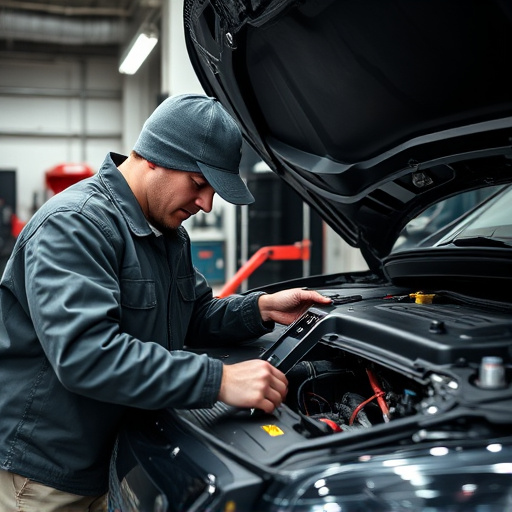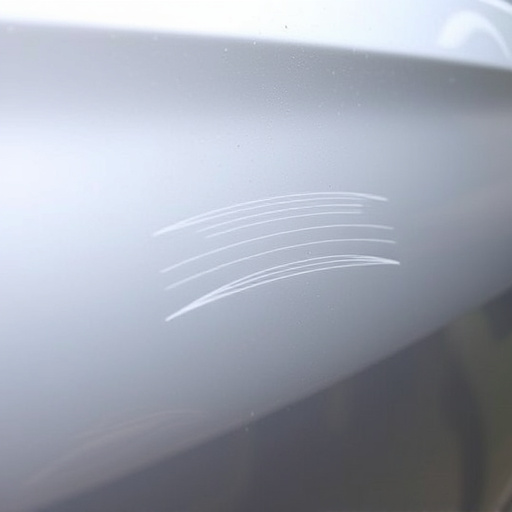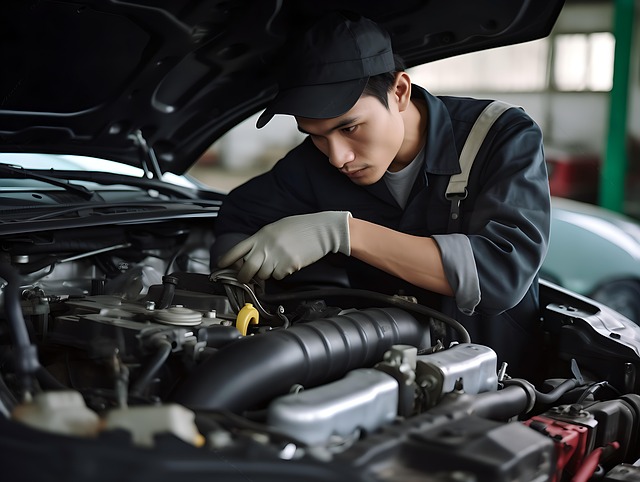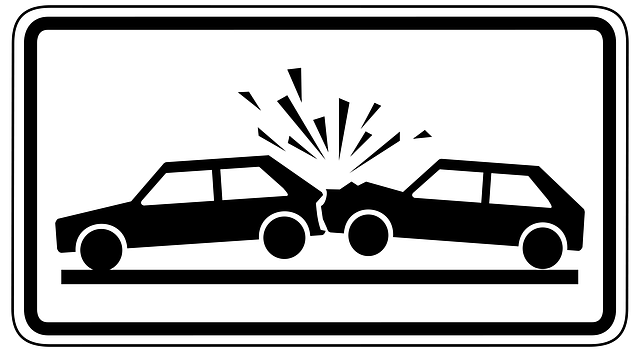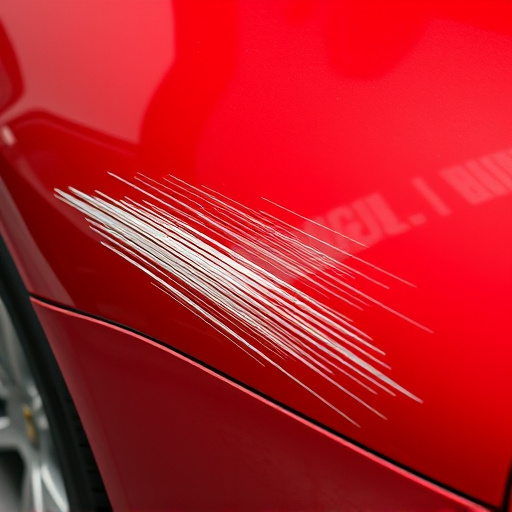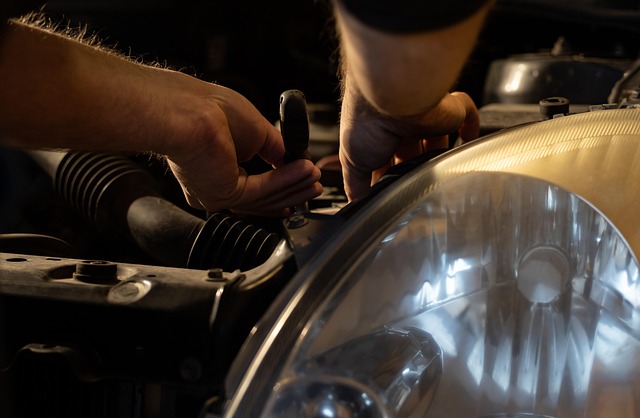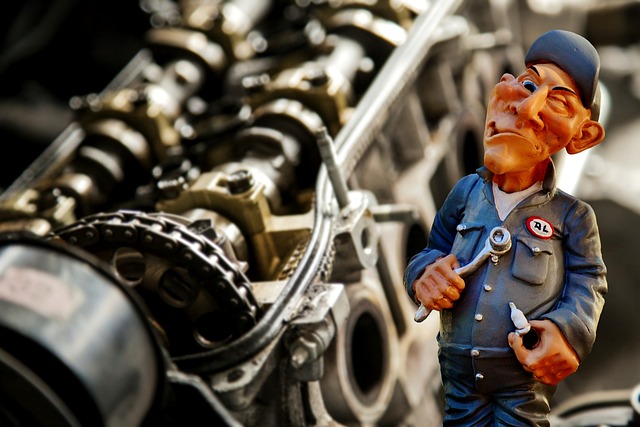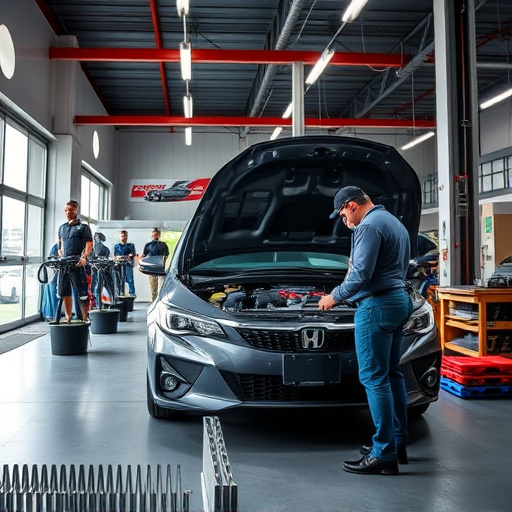Diesel truck collision repair is a vital process for ensuring road safety and environmental sustainability. Following accidents, skilled technicians conduct thorough inspections, assess damage, and perform meticulous repairs, including structural fixes, engine tune-ups, and tire services. This comprehensive approach not only restores the truck's performance but also significantly reduces future accident risks by enhancing safety features. Modern facilities, advanced tools, and environmentally conscious practices further emphasize the critical role of diesel truck collision repair in maintaining a secure and green transportation network.
Diesel trucks play a vital role in our transportation network, but their involvement in collisions can have significant consequences. This article delves into the critical aspect of diesel truck collision repair and its impact on safety standards. We explore the intricate process and advanced techniques employed to restore these massive vehicles to their pre-accident condition, focusing on enhanced safety and environmental considerations. By understanding these repairs, we gain insights into how they contribute to safer roads and a greener future.
- The Significance of Diesel Truck Collision Repair in Ensuring Safety Standards
- Process and Techniques Employed in Diesel Truck Collision Repair
- Impact of Repaired Diesel Trucks on Road Safety and Environmental Considerations
The Significance of Diesel Truck Collision Repair in Ensuring Safety Standards

Diesel truck collision repair plays a pivotal role in maintaining and enhancing safety standards on our roads. When a large commercial vehicle like a diesel truck is involved in an accident, the potential for severe damage and hazard is significantly higher than with smaller vehicles. Proper collision repair ensures that all critical components of the truck are meticulously assessed and restored to their optimal condition.
This process includes not just structural repairs but also specialized services such as tire replacements or repairs, which are essential for maintaining traction and control. Moreover, skilled technicians may also address other aspects like engine tune-ups and system checks to guarantee that the diesel truck operates at peak efficiency and safety after the repair, effectively mitigating risks on the highway.
Process and Techniques Employed in Diesel Truck Collision Repair
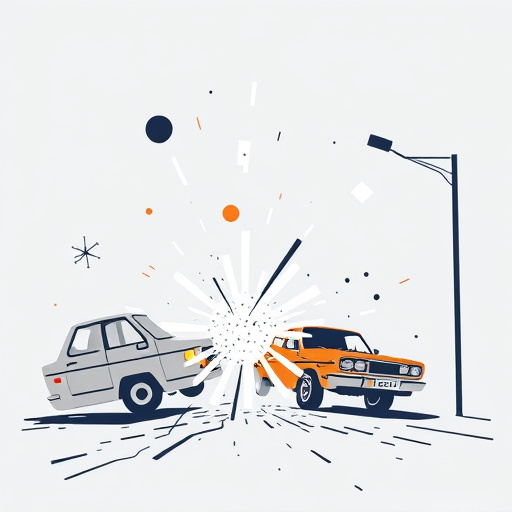
The process of diesel truck collision repair involves a meticulous series of steps to ensure both structural integrity and optimal performance are restored. It begins with a thorough inspection to assess the damage, which can vary from minor dents and scratches to more severe crumple zones and frame distortion. Advanced diagnostic tools are employed to evaluate the impact on the vehicle’s systems, including engines, transmissions, and electronic modules.
Skilled technicians utilize specialized equipment and techniques tailored for heavy-duty vehicles like Mercedes-Benz repair specialists equipped to handle complex repairs. This includes precision welding, computer-aided alignment, and high-quality parts replacement. Tire services are also a critical aspect, ensuring proper inflation pressure and tread condition post-repair. Collision repair centers invest in state-of-the-art facilities and training to meet stringent safety standards, guaranteeing that each repaired diesel truck is safe and reliable on the road.
Impact of Repaired Diesel Trucks on Road Safety and Environmental Considerations
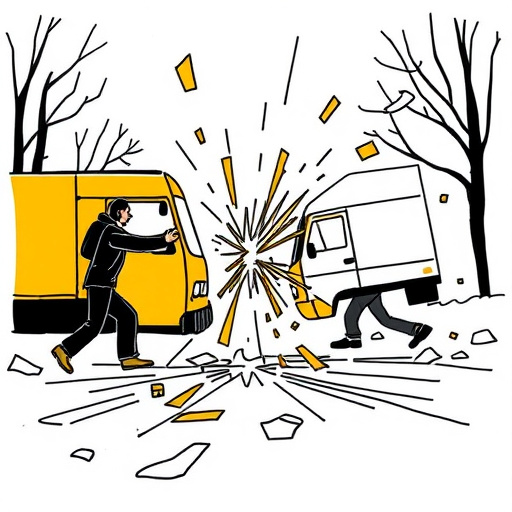
The impact of diesel truck collision repair on road safety is significant. When a diesel truck undergoes successful repair after a collision, it restores the vehicle to its original structural integrity and performance standards. This means that drivers can return to safe operating conditions on the road, reducing the risk of future accidents caused by damaged vehicles. Repaired trucks equipped with advanced safety features, such as improved brakes, enhanced lighting systems, and updated airbag technology, contribute even further to overall road safety.
Environmental considerations also play a crucial role in diesel truck collision repair. Modern repair techniques prioritize eco-friendly practices, ensuring that the replacement parts and materials used are sustainable and non-toxic. Additionally, proper disposal of damaged components and efficient use of resources minimize the environmental footprint of vehicle repair services. This not only helps preserve natural resources but also promotes a greener approach to auto glass replacement and dent removal processes, ultimately benefiting both the community and the planet.
Diesel truck collision repair plays a pivotal role in maintaining safety standards, not just for commercial vehicles but also for all road users. By employing advanced techniques and adhering to stringent protocols, this specialized sector ensures that damaged trucks are restored to their optimal condition. The positive impact extends beyond individual accidents, contributing to reduced risks on the road and mitigating environmental hazards associated with vehicle failures. Through diligent repair practices, the industry fosters a safer and more sustainable transportation network.


